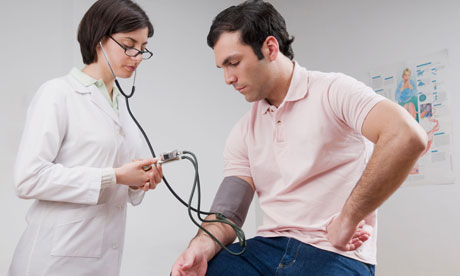
When you fall seriously ill the last thing you want to worry about is money, but all too often, it becomes the biggest concern of all. Money can also be a worry if you are caring for a close relative. Nearly half of all UK carers have been made ill by money worries, according to Carers UK.
As rising life expectancy means we all live for longer, more of us will have to deal with the financial complications of illness. So what can you do about it?
Don't think it won't happen to you, because 300,000 people have to stop working due to injury or illness every year, says Peter O'Donnell, chief executive officer at insurer Unum. "One in four people fall into poverty after a long-term absence from work."
Claiming sick pay
How much sick pay you get depends on who you work for. Your employer is obliged to give you statutory sick pay (SSP), but only for the first 28 weeks of illness. And at £85.85 a week, it is hardly riches. That's equivalent to £4,464 a year, roughly one-sixth of the national average full-time salary of £26,500.
Your company may offer occupational sick pay on top of that, but only one in three private sector employers do so, Unum says, and just 4% pay full salary for six months. Public sector sick pay also varies greatly, so check your employment contract to see what you are entitled to.
Finding out about benefits
If you are still unfit for work after 28 weeks, you may have to claim income support, topped up by child tax credit if you have children.
You may also be able to claim special sickness and disability benefits, says Veronica Lynch, helpline manager at disability charity Scope. "What you get depends on your age, financial situation, disability or illness, and how badly it affects you."
The benefits system is complex and undergoing an overhaul. If you're ill or disabled, you might be able to claim employment support allowance (ESA), previously called incapacity benefit.
If you're between 16 and 64, you might be able to claim disability living allowance to help with the extra costs of disability (DLA will be replaced by the personal independence payment from April). Attendance allowance offers help with personal care for those 65 and over.
Some people might also be able to claim industrial injuries disablement benefit or constant attendance allowance. If you need to adapt your home, you may be eligible for a disabled facilities grant. Also check your eligibility for a care in the community assessment. If you are caring for somebody else, even if they're not a relative, you might also be able to claim carer's allowance.
You can find out more by contacting the Benefits Agency Enquiry line (0800 882 200), Citizens Advice or a local disability information and advice service.
Claiming on your insurance
You should also check what insurance you have, says Alasdair Watt at Macmillan Cancer Support, which offers free financial guidance for people affected by cancer. "You may have taken out life insurance, critical illness cover or income protection years ago and forgotten about it. If you have, any payout could really ease you or your family's money worries."
Critical illness cover pays a tax-free lump sum if you are diagnosed with a serious medical condition such as heart attack, cancer or stroke. Income protection pays a replacement income, which may last until you recover or reach retirement age.
Check whether you have insurance through your employer, such as death-in-service benefits, group income protection or private medical insurance.
If you think you can make an insurance claim, contact the adviser who sold you the policy, your employer, or the insurer. You may need to supply a letter from your GP or hospital consultant, confirming details your illness.
Grants and help
Falling ill can be a drain on your wallet. "You will have new costs, such as travelling to hospital and parking charges, and prescription fees. You may also have to buy new clothing, if you lose weight due to illness," says Watt.
Check whether you can get help from the relevant charity for your illness. Macmillan, for example, gives £10m worth of grants to 30,000 people a year for one-off costs.
Your heating costs are likely to rise, as you spend more time at home, Watt says. "If you are struggling to pay your bills, speak to your utility supplier, who may put you on an affordable repayment programme, or even wipe out any arrears."
Some energy suppliers offer discounts to "vulnerable people" through the Warm Home Discount scheme.
If you are falling into the red, avoid fee-charging debt management companies, stick to charities that offer free help, notably National Debtline, StepChange Debt Charity Debt Advice Foundation or Citizen's Advice.
Taking early retirement
If you are close to pension age, you might be able to take early retirement. If you decide to buy an annuity, an income for life, with your pension pot, shop around for something called an enhanced life annuity, says Steve Lowe, director at advisers Just Retirement. "This could pay you up to 40% more income because your life expectancy is shorter, which means the annuity company probably won't have to pay out for as long."
If you're seriously ill you could take advantage of rules that allow you to take your entire pension fund as a one-off lump sum, rather than buying an annuity. There's a lot to consider, so start seeking advice now.
• For all the latest news and deals sign up for our weekly Money Talks email

